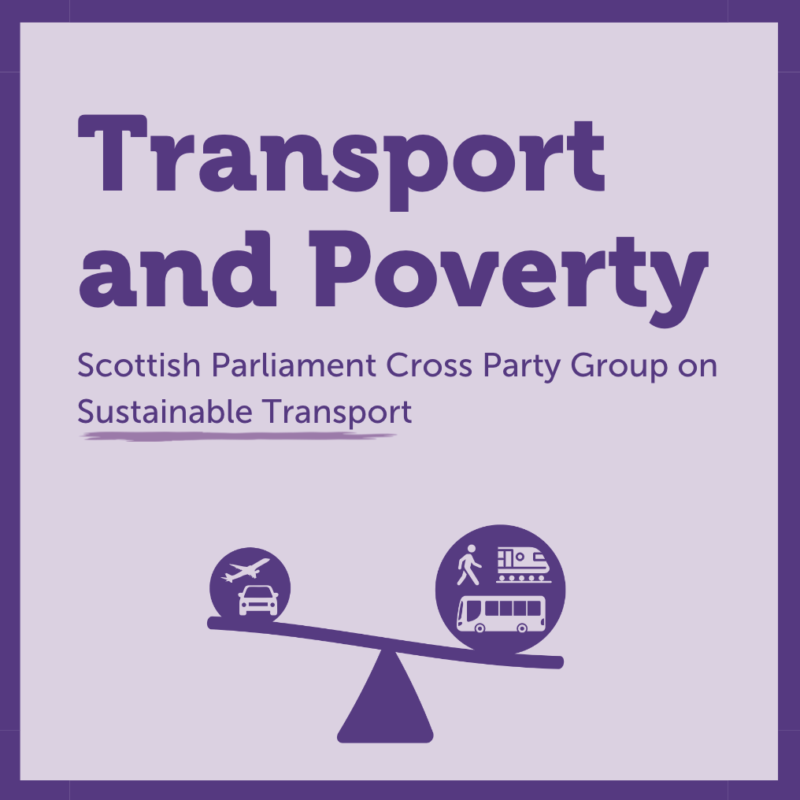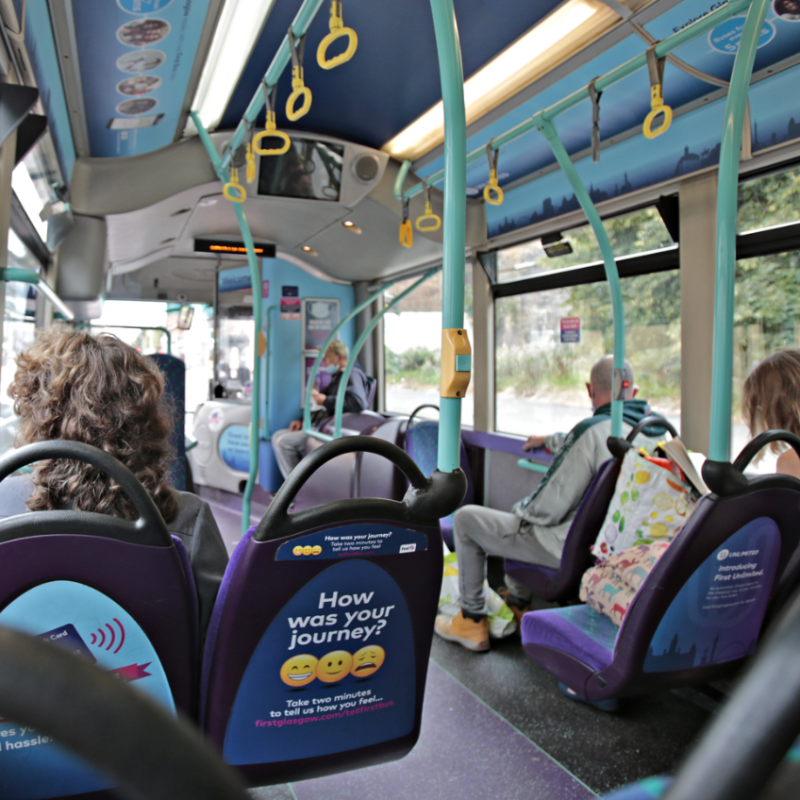We have published our response to the Transport Scotland consultation on Workplace Parking Licensing regulations and guidance.
Transform director Colin Howden said:
“Our response is based on the principle of giving the proposers, that is Scottish local authorities, as much flexibility as possible. We found a tendency within the consultation for power in the process of creating WPL schemes to be taken by the Scottish Government, and we think that this should be avoided wherever possible.”
Our full response is below.
Questions
1 Are there other elements of WPL schemes that local authorities should be required to consult on, besides those listed under the ‘Consultation and Impact Assessment’ section?
Yes
The background document already indicates that local authorities must consult on an outline of the scheme they propose to make, amend, or revoke. (This includes details such as licensing area; scheme duration; charge per place; arrangements for reviewing the scheme; exemptions; the proposal’s objectives, how it will achieve them and facilitate LTS policies; how the local authority will apply the proceeds.) We consider this to be comprehensive, and it for local authorities to decide any other issues for inclusion. Including excessive and superfluous matters in a consultation may deter potential respondents; more is not necessarily better.
However, there is one item which we think may be useful to add. We would suggest that any impact assessment studies carried out as part of the WPL preparatory work should also be part of the consultation and local authorities should have to show how they are responding to any issues raised in the assessments.
2 Should the regulations specify a list of statutory consultees that local authorities are required to consult?
Yes
The number of statutory consultees should be strictly limited. In the interest of consistency it should include only those who are statutory consultees for equivalent consultations, such as Mobility Plans.
3 When local authorities communicate information about new, amended, or revoked WPL schemes, what information should the notices contain? Please support your view with evidence where possible.
Clearly this should reflect the scale of any amendment. Where there are significant changes the local authority should provide impact assessment studies. The criteria for defining which changes would require impact assessments should be developed at a national level. Complete revocation of a scheme, however, should include the same level of information as its introduction.
4 When local authorities communicate information about new, amended, or revoked WPL schemes, where/how should notices be published? Please support your view with evidence where possible.
We cannot see why national guidance is required for this. Local authorities are much better placed to assess appropriate information channels in their area. The days when there were one or two universally-followed channels are long past. An option may be to use the same guidance as local transport strategies / mobility plans if this exists.
5 Are there any circumstances where an employer besides the occupier of the premises should be responsible for the charges imposed through a WPL scheme?
Yes
1. When one employer rents parking spaces to another employer, both should potentially be liable for WPL depending on the details of the lease/arrangement.
2. Public car park operators should be liable for spaces contracted out to employers.
3. Where the workplace is a branch, the person who should be charge might be at the company’s head office.
The existing WPL scheme in Nottingham recognises these circumstances and could provide useful guidance on how to ensure that this is recognised in Scottish guidance.
6 Should the rationale and process for a local authority’s review of licensing decisions be wholly set out by the local authority?
Yes
This would be in the interests of transparency and to ensure that locally approved procedures are followed in the view of the local authority. This is a necessary step in the enforcement appeal process. The local authority must have the opportunity to review decisions made according to their own criteria before the employer goes to formal appeal.
7 What circumstances/rationale do you consider reasonable for review or appeal of licensing decisions to take place?
1. Where there is a question of whether the decision has been correctly made, in terms of the information provided about the scheme.
2. Where the local authority disputes the number of liable parking places put forward for licensing by the employer.
3. Where the local authority disputes the employer’s contention that they should have an exemption from the scheme
8 Do you agree with the approach to penalty charges as outlined under the ‘Penalty Charges’ section?
Yes
9 Do you consider that there should be additional grounds for review or appeal of penalty charges besides those listed under the ‘Penalty Charges’ section?
No
Any scheme should be simple and easy to understand. Adding extra statutory requirements, complications, or exemptions, will make it more difficult to achieve that goal. Of course there may be exceptional circumstances; however, the way to address these is by adopting a pragmatic approach, not by attempting to cover every conceivable situation.
10 Which approach to the amount of the penalty charge do you consider more appropriate?
The amount of the penalty charge be determined entirely by local authorities.
Having indicated in the background notes that ‘the amount of the penalty charge would not be set in regulations, as the penalty should be proportionate to the WPL charge set by local authorities’, setting a national formula would completely contradict that intention.
Local authorities must be able to compare the WPL penalty charge with other charges already undertaken by them, and to take into account local circumstances.
11 Do you agree with the approach outlined under ‘Accounts’?
Yes
12 Do think further regulation on accounts is required?
No
13 What positive or negative impacts do you think the WPL proposals outlined within this consultation may have on particular groups of people, with particular reference to ‘protected characteristics’; children and young people; people facing socioeconomic disadvantages; or people living in island communities?
1. Particular groups – WPL schemes are flexible and can be shaped to take more account of protected groups e.g. by means of selected exemptions and/or working with employers to ensure that these groups are taken into account if the employer is passing on the charge to employees. Local authorities need to apply justified local knowledge to shape the scheme.
2. Children and young people – there is an opportunity for local authorities to use WPL receipts for transport improvements benefitting children and young people if this is a local priority e.g. through improved public transport services that may particularly benefit young people.
3. People facing socioeconomic disadvantages – WPL helps to balance negative externalities such as road traffic accidents, pollution, carbon emissions, which can disproportionately affect lower income groups, by increasing financial costs of driving. Local authorities should work with employers to ensure that if WPL is passed to employees then good practice is encouraged, e.g. charging higher paid employees more and lower paid employees less. Rural areas should benefit due to improved public and active transport options including Park and Ride.
4. People living in island communities – WPL is unlikely to have much impact on people living in island communities as it is currently proposed to be implemented in the Scottish cities.
14 Do you think the WPL proposals outlined within this consultation are likely to increase, reduce or maintain the costs and burdens placed on business sectors? Please be as specific as possible in your reasoning.
Please give us your views in the text box below::
WPL both increases and reduces costs and burdens placed on business. LAs should carry out an economic impact study which attempts to measure the pluses and minuses and comes to a conclusion that is able to be accepted (or at least recognised) by stakeholders.
Increased costs and burdens may include:
* Additional charge on business
* Additional administrative responsibilities for business * Possible additional charge on car commuters
Decreased costs and burdens may include:
* Contributes to air quality, congestion and carbon emission targets, therefore reducing climate emergency, health and freight burdens
* Contributes to economic growth in city by providing funds for transport improvements (evidence from Nottingham)
* Encourages car commuters to try more sustainable options, leaving limited road space free for business users
* If managed properly, can improve fairness and health at workplace by being incorporated into workplace parking strategy including travel plans and other benefits
* Provides revenue for general transport improvement, benefitting residents as well as commuters
15 What impacts do you think the proposals outlined in this consultation may have on the personal data and privacy of individuals?
We believe others will be better placed to assess this.
16 Do you think the WPL proposals outlined in this consultation are likely to have an impact on the environment? If so, in what way? Please be as specific as possible in your reasoning.
It will be beneficial. That is the point of the legislation.
1. Encourages use of sustainable transport options by disincentivising car use, therefore contributing to air quality and climate emergency mitigation
2. Provides revenue for better sustainable transport options, also contributing to climate emergency and air quality
3. Encourages more sustainable land use (redevelopment of car parks), potentially creating more accessible new development areas
4. Contributes to creating conditions for more sustainable neighbourhoods and centres by reducing car traffic demand for roadspace and enabling it to be used for active and public transport
17 Do you have any other comments that you would like to add on the Scottish Government’s WPL proposals outlined within this consultation?
No further comments.





